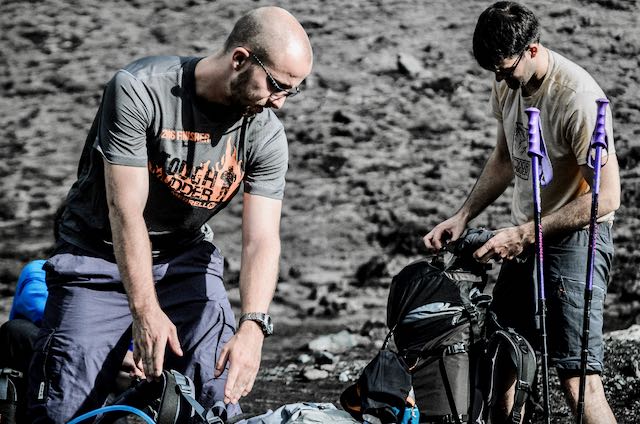
5 Things I learned about PKM from my PhD
Working on my PhD over the last four years has been the hardest thing I've ever done. It has also taught me a lot about note-taking and personal knowledge management.
Here are five big things I learned 🧵
Working on my PhD over the last four years has been the hardest thing I've ever done. It has also taught me a lot about note-taking and personal knowledge management.
Here are five big things I learned 🧵
#1: You can't read everything
Whatever you're interested in, there are more books and articles written about than you could ever read in a lifetime. So don't try to read everything.
Instead:
- read the best things
- read them deeply
- skim a wider selection and compare
Whatever you're interested in, there are more books and articles written about than you could ever read in a lifetime. So don't try to read everything.
Instead:
- read the best things
- read them deeply
- skim a wider selection and compare
#2: Good note-taking requires effort
Reading deeply and comparing widely takes time and effort. No matter how fancy your tool or efficient your system is, there is no way around this.
Accept this, make time for it, and invest the effort. You'll be glad you did.
Reading deeply and comparing widely takes time and effort. No matter how fancy your tool or efficient your system is, there is no way around this.
Accept this, make time for it, and invest the effort. You'll be glad you did.
#3: Synthesis requires the right environment
With the start of the PhD I had access to a shared office with other PhD students. While I loved the atmosphere, my ADHD meant that I could *not* concentrate at all.
So I came in earlier to write, or wrote somewhere else.
With the start of the PhD I had access to a shared office with other PhD students. While I loved the atmosphere, my ADHD meant that I could *not* concentrate at all.
So I came in earlier to write, or wrote somewhere else.
#4: The tools you use do matter
I said before that no matter how fancy your tool is, it won't eliminate the required effort. But the right tool and system can make things *much* easier.
Using @RoamResearch was life-changing for my academic work.
So find the right tool for you.
I said before that no matter how fancy your tool is, it won't eliminate the required effort. But the right tool and system can make things *much* easier.
Using @RoamResearch was life-changing for my academic work.
So find the right tool for you.
#5: Do the things that work for you
Even after figuring out the best way to do things for my work, I still had days and weeks where I didn't stick to that. Progress stalled.
When I returned to what I knew worked, things would magically get better.
Do what works.
Even after figuring out the best way to do things for my work, I still had days and weeks where I didn't stick to that. Progress stalled.
When I returned to what I knew worked, things would magically get better.
Do what works.
The TL;DR for 5 Things I learned about #PKM from my PhD
- You can't read everything
- Good note-taking requires effort
- Synthesis requires the right environment
- Tools matter
- You need to do what works. You know what that is.
- You can't read everything
- Good note-taking requires effort
- Synthesis requires the right environment
- Tools matter
- You need to do what works. You know what that is.
If you're a student yourself or want to learn about note-taking from a researcher's perspective for other reasons, check out Cite to Write.
You'll learn a full workflow for reading, taking notes, and writing distilled from everything I learned in my PhD.
cortexfutura.com/p/cite-to-writ…
You'll learn a full workflow for reading, taking notes, and writing distilled from everything I learned in my PhD.
cortexfutura.com/p/cite-to-writ…
• • •
Missing some Tweet in this thread? You can try to
force a refresh






